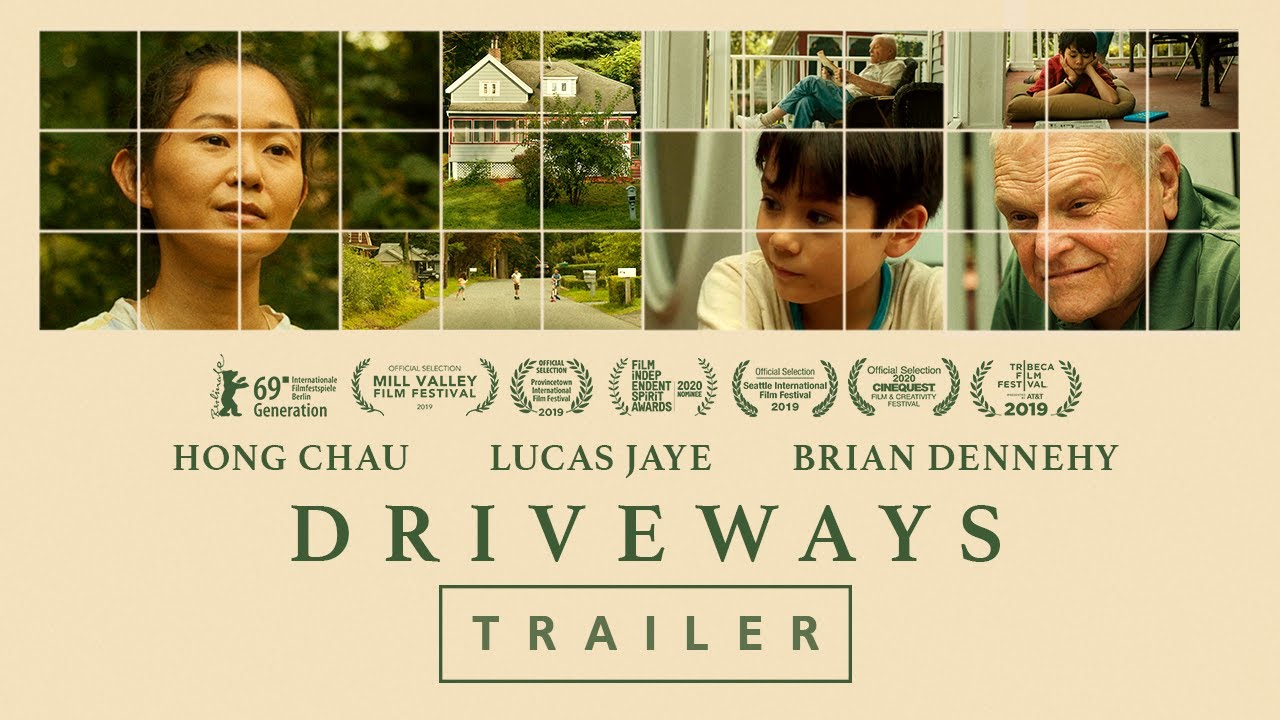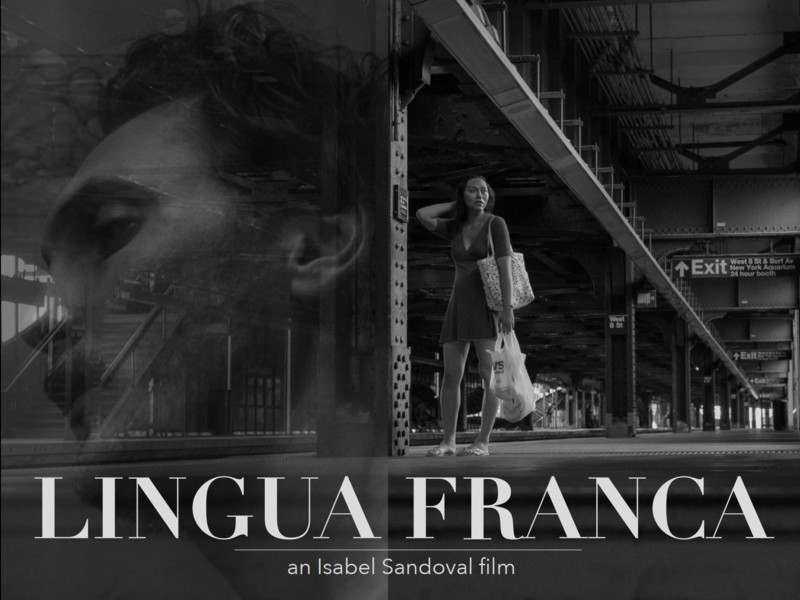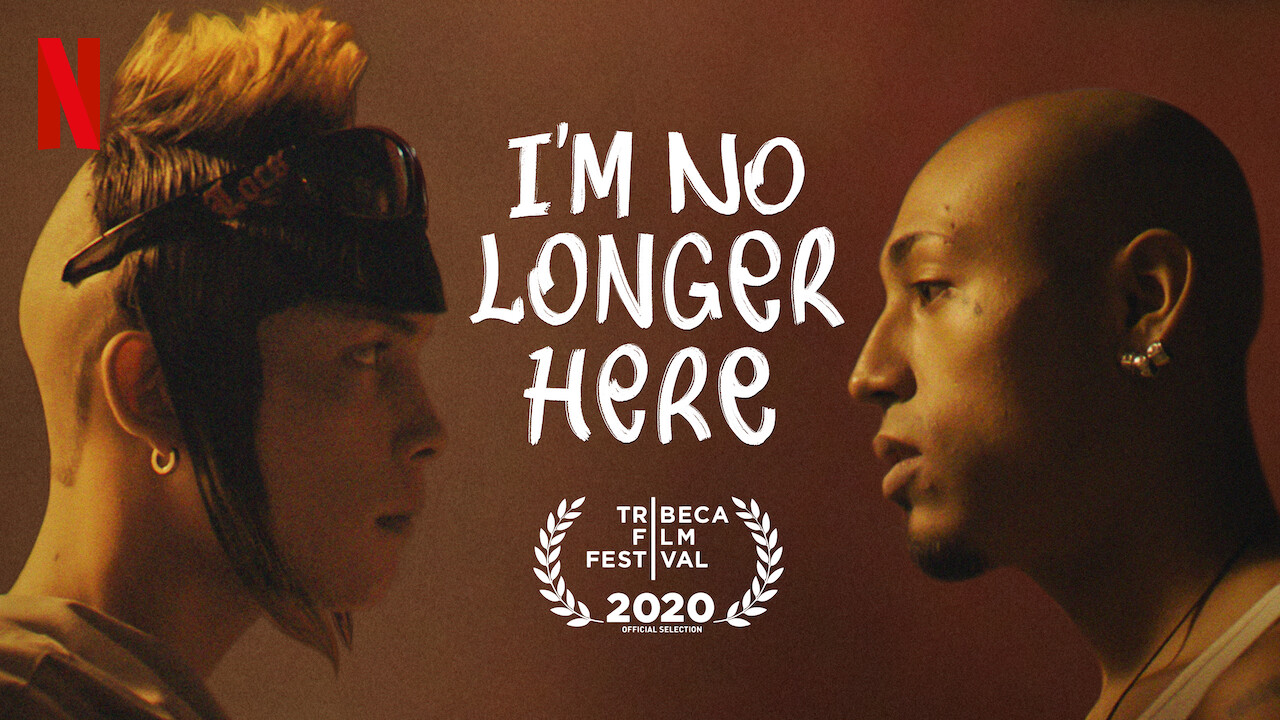I Wake Up Streaming: January 2021
Movies
In this edition of “I Wake Up Streaming,” novelist William Boyle rounds up his top streaming picks for the month of January. The column’s name is a play on the 1941 film I Wake Up Screaming, starring Betty Grable, Victor Mature, and Carole Landis. While the film’s title hits a pleasing note of terror and despair, changing that one letter speaks to the joy of discovering new films and rediscovering old favorites, as well as the panic that comes with being overwhelmed by options.
The end of the old year and the beginning of the new year are always about catching up on movies I’ve missed. Many of my favorites of 2020 became available on streaming services just recently. I’m going to focus on a handful of those here.

Driveways (Showtime, Kanopy)
In Andrew Ahn’s Driveways, Hong Chau plays Kathy, a single mom who has brought her son Cody (Lucas Jaye) along to clean out the house of her dead sister, a nightmare hoarder. Brian Dennehy—in one of his final roles—plays Del, the widower who lives next door. I had a slight fear early on that Driveways was breaking for Gran Torino territory and was relieved when nothing like that came to be. The movie centers on the friendship that develops between Cody and Del, but it’s equally Kathy’s story. I found Driveways incredibly moving and pretty much wept through the whole thing. Hong Chau is riveting—she’s brilliant in her brief turn in Paul Thomas Anderson’s Inherent Vice, and it’s so damn good to see her in a part like this. And Brian Dennehy brings it home with an all-timer of a performance, doing what he’s always been best at, a sort of hulking tenderness. Chau and Dennehy both deserve awards. So much depends upon the performances, but the script by Hannah Bos and Paul Thureen is terrific too, a quiet, character-driven piece that avoids the pitfalls of formula and lets silence breathe space around the action. Jay Wadley’s score is beautiful. A quiet, aching, lovely film overall. As a double, it would pair well with Kogonada’s Columbus (Kanopy), starring Haley Lu Richardson and John Cho, one of my favorites of 2017.

Lingua Franca (Netflix)
Written, produced, edited, directed by, and starring Isabel Sandoval, Lingua Franca was one of the year’s great revelations for me. Sandoval plays Olivia, an undocumented Filipina trans woman who is a caregiver for an old Russian woman, Olga, in Brighton Beach, Brooklyn. Terrified by ICE raids throughout the city, she’s distraught when her plan to marry for a green card falls through. She begins a relationship with the troubled grandson of her care receiver, Alex (Eamon Farren from Twin Peaks: The Return), a recovering alcoholic who moves in with his grandmother and takes a job at a slaughterhouse run by a family member. Both Sandoval and Farren give stunning, seductive performances. The structure emphasizes the narrative’s focus on cycles of pain and suffering, some that we can’t avoid, many that are self-inflicted or perpetrated on humans by other humans. Lingua Franca is many things—a trans narrative, a story about a marginalized woman of color, a story about immigration and displacement, a study in melancholy and loneliness, a great New York movie—but it’s also more than the sum of its parts. It’s sensual and intimate and meditative. Patient and passionate. A true emotional experience. James Gray is one of my favorite filmmakers, and Lingua Franca reminded me of my first experiences watching Gray’s Little Odessa (1995) and Two Lovers (2008), both in how Brooklyn is shot and how these lonely, struggling characters deal with the uncertainty of their existence from block to block. Sandoval and DP Isaac Banks manage to evoke the spirit of the city in a restrained way. As a native Brooklynite, I’m always amazed when I see the Brooklyn I know captured on film. So often we see a movie version of New York City, but here we have the city as it is, a place that can be simultaneously welcoming to immigrants and outsiders and yet so cold and anonymous and heartbreaking. In an interview, Sandoval suggests pairing Lingua Franca in a triple feature with Rainer Werner Fassbinder’s Ali: Fear Eats the Soul (Criterion Channel, Kanopy, HBO Max) and Gray’s Two Lovers (Tubi, Magnolia Selects), and I would highly suggest making that happen.

Sound of Metal (Prime)
Riz Ahmed gives the performance of the year in Sound of Metal, playing Ruben, a heavy metal drummer touring the country with his partner Lou (Olivia Cooke). They play loud shows at dive-y halls, a rambunctious two-piece with an ostensibly large following. When Ruben suddenly loses his hearing, everything turns upside down. A quick visit to a hearing specialist reveals that things will only get worse, that the damage is irreversible and that Ruben’s only hope is to retain the hearing he has by changing his lifestyle. When he learns that cochlear implants are an option, he thinks of it as a solution to his problem, albeit an expensive one. His record label secures him a spot in a deaf community where he’s told that he must let go of his old life for the time being, including Lou, to adjust. He learns to sign and live with his hearing loss, becoming an indispensable member of the community. In the back of his mind, though, he continues to plan to get implants so he can get back to Lou and his old life, not realizing it’s a betrayal of his new life, where deafness is not and cannot be viewed as a handicap. Ahmed’s performance is full of heart and emotion. The script is by director Darius Marder, his brother Abraham, and Derek Cianfrance, and it feels like a throwback to a certain kind of ’70s drama that feels lost amidst a sea of superhero movies and sanitized biopics. The sound design, it should be noted, is also incredible. As a double, I’d pair it with Frederick Wiseman’s 1986 documentary Deaf (Kanopy) about the School for the Deaf at the Alabama Institute.

I’m No Longer Here (Netflix)
Fernando Frias’s I’m No Longer Here came out of nowhere for me. I hadn’t heard or read much about it until I saw the filmmaker Sean Baker log it on Letterboxd. It’s Mexico’s submission for Best International Feature Film at the 2021 Oscars. Juan Daniel Garcia Treviño gives a knockout performance as Ulises Sampiero, a member of a youth gang in Monterrey, Mexico obsessed with dancing to cumbia. Trouble with a cartel forces Ulises to cross the border. He winds up in New York City, working with a few other Mexican immigrants who don’t get him or his hair or cumbia. He befriends the Asian-American daughter of a bodega owner he does some work for. At its core I’m No Longer Here is a coming-of-age story. Like Lingua Franca it also manages to be a great New York movie. Visually striking and anchored by Treviño’s mournful performance, it’s a film that’s really lingered in my imagination. Double feature recommendation: it’s not a perfect match, but I feel like this would pair well with Guillermo Arriaga’s woefully underrated The Burning Plain (Tubi, Vudu).

Yourself and Yours (MUBI)
The prolific South Korean director Hong Sang-soo has become one of my favorite filmmakers over the last few years. I was a little late to catch on, but once I did, I was all the way in and now consider myself a hardcore fan, anticipating every film that gets released. Yourself and Yours, currently on MUBI (but rotating out of their collection in a few weeks), was new to me. Hong Sang-soo hammers on the same themes and same situations over and over again in the most pleasant way imaginable. He has his obsessions—male egotism, identity, time, mistakes, expectations, possibility, doubling, imagination, repetition, and regret chief among them—and there is no filmmaker who will make you want to drink (here it’s beer instead of the usual soju) and smoke cigarettes so damn much. David Ehrlich writes that “Hong Sang-soo movies have never been about what happens. Some of them are about what happened, some of them are about what could have happened, and—increasingly—some of them are about the difference between the two.” Those lines are blurred wonderfully in Yourself and Yours, where Lee Yoo-young plays So, a woman confronted by her boyfriend for getting drinks with a strange man. Throughout the film her identity shifts and slips. She has a series of encounters with men who claim to know her, though she doesn’t know them. It’s funny and endearing, never frustrating as it might be in another filmmaker’s hands. In Hong Sang-soo’s films, we relive circumstances and dilemmas from different perspectives, and we’re forced to question our very notions of truth and trust. Double it with another recent Hong Sang-soo release, Grass (Kanopy), starring the enchanting Kim Min-hee.
William Boyle is the author of the novels Gravesend, The Lonely Witness, A Friend Is a Gift You Give Yourself, and City of Margins, and a story collection, Death Don’t Have No Mercy. His novella Everything Is Broken was published in Southwest Review Volume 104, numbers 1–4. His writing on film has appeared in Oxford American and CrimeReads. He used to have a blog about ’70s crime films called Goodbye Like a Bullet. His website is williammichaelboyle.com.
More Movies
